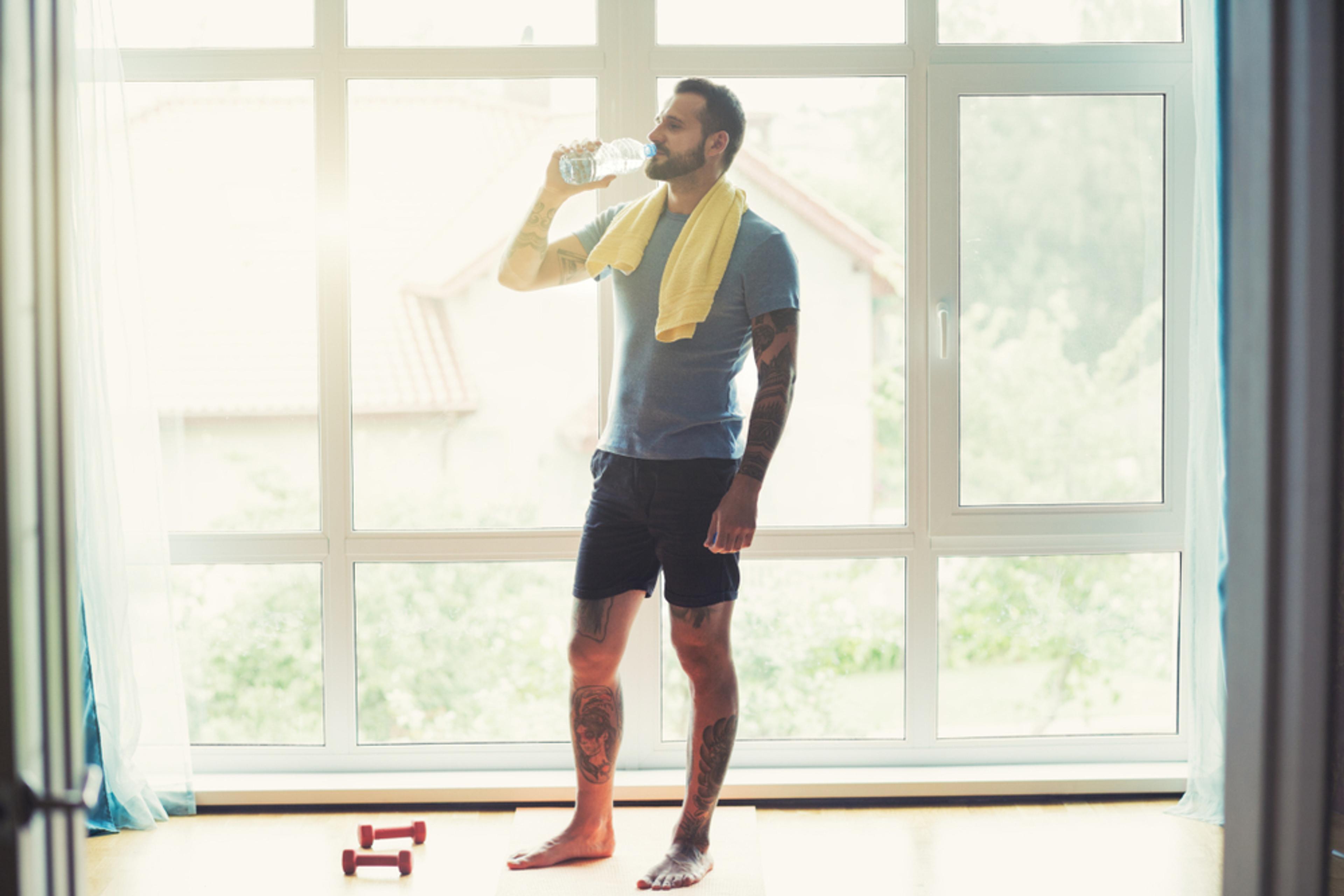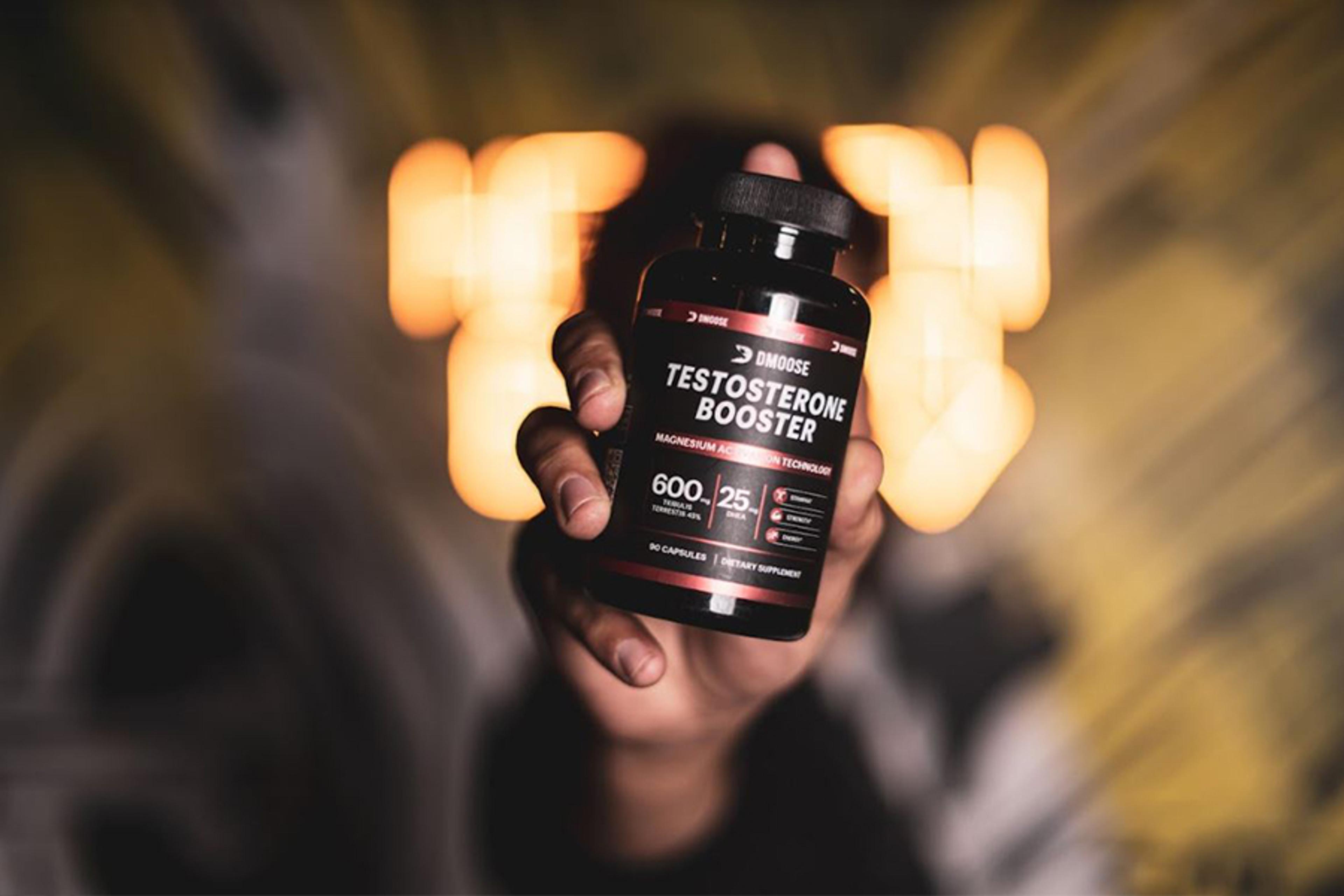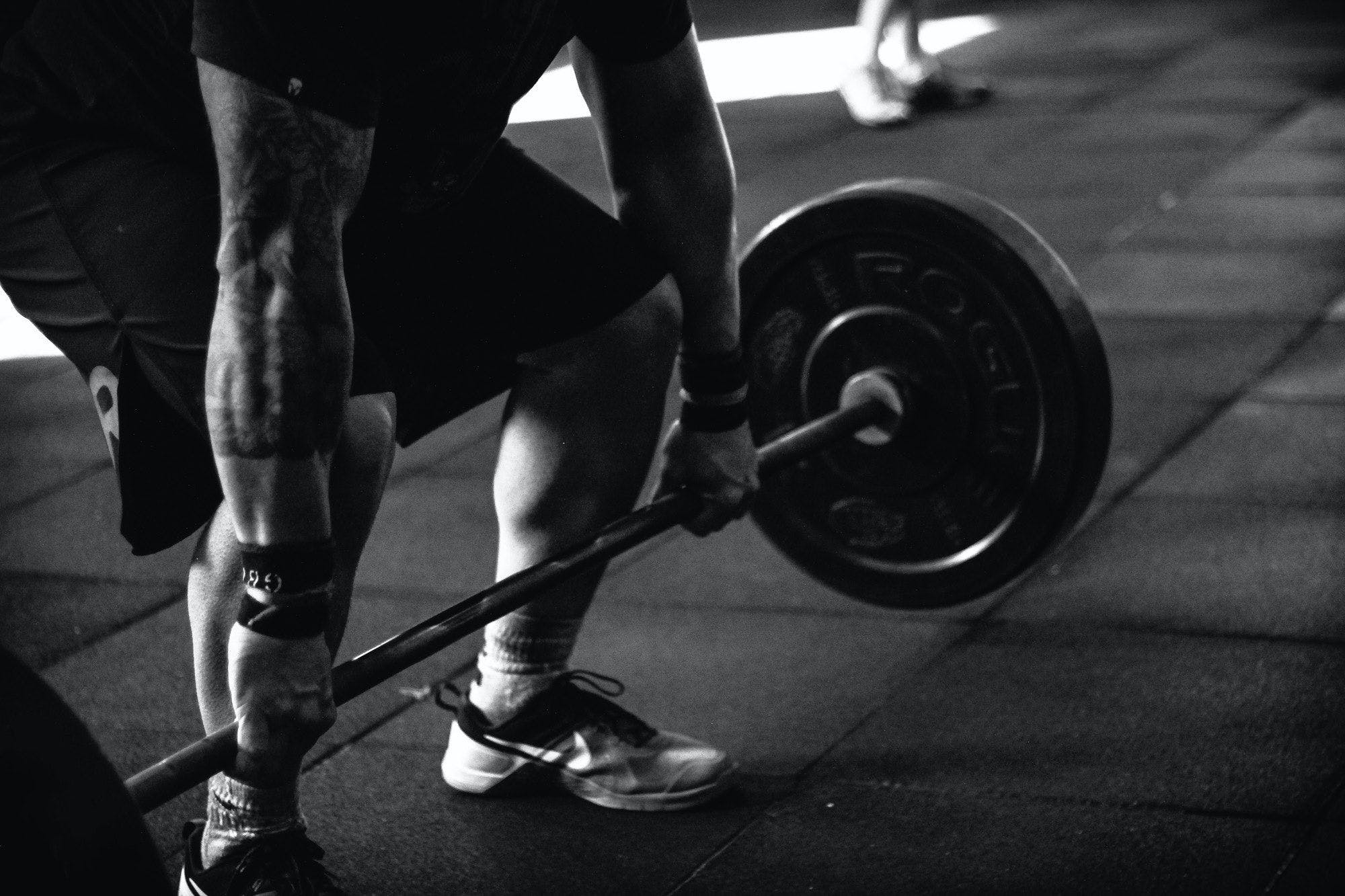Although testosterone is the most important male sex hormone for men, it’s also found in females in small quantities. This steroid hormone is produced in the testicles of men and the ovaries of women. The adrenal glands also produce small amounts.
Testosterone plays a significant role in physical changes in boys who reach puberty, such as increased muscle mass, deeper voice, and more hair growth. But, it is crucial to maintain optimal levels throughout life, even in old age.
Healthy testosterone levels in adults are essential for good health, minimizing disease risk, proper body composition, appropriate sexual function, and general health.
Research has shown that both sexes need to have healthy testosterone levels as they age. Testosterone can also increase muscle mass and vitality in just a few weeks. It also plays a significant role in the health and well-being of females.
Let us see how having significant amounts of testosterone in the body, possibly gained from supplements (these testosterone supplements are effective), can help your muscle-building goals.
Role of Testosterones in Building Lean Muscles

Primarily, this hormone is responsible for the development of male reproductive tissue. Consequently, it promotes secondary sexual characteristics like muscle growth, bone mass and the growth of body hairs.
Testosterone is found to have both anabolic and androgenic effects. Androgens promote protein synthesis in general. An androgenic effect is the maturation of sex organs, other body hairs growth, and a deeper voice.
Anabolic effects include increased muscle mass, strength, bone density, and stimulation for linear growth. You will be able to build muscles by taking high levels of testosterone. It can also increase strength.
However, even if your testosterone levels are higher, you won’t see significant muscle growth if you don’t exercise.
Working out with high testosterone levels helps increase muscle mass. It does this by increasing the size of muscle fibres (hypertrophy) and increasing muscle protein synthesis.
Muscle fibres, also known as myofibrils, are the structural part of a muscle. Androgen receptors are found in these muscle fibres. Testosterone stimulates androgen receptors.
Testosterone administration causes myofibrils in men with Low-T to grow in number, increasing muscle cells and, consequently, more muscle mass. Myofibril shrinkage (shrinkage) in Low-T men can lead to loss of muscle size, myofibril mass, and myofibril dissolution.
Testosterone promotes lean and healthy muscle growth by up-regulating muscle building (myogenesis). It may also cause nitrogen retention, signal protein synthesis and promote muscle growth. A rise in lean muscle mass can increase metabolism, which will also help accelerate the fat cell reduction cycle.
Here are some tips to naturally enhance your testosterone levels to help you build more muscles and gain strength and overall wellness.
Tips to Increase Testosterone Levels
Yes! You can increase your testosterone levels naturally by changing little habits and gaining big muscles. Whether you are a male or a female, here are some tips you can rely on to boost your levels naturally.
- Lift Weights
One of the best ways to avoid many lifestyle-related illnesses is strength training and exercise. Interestingly, exercise increases your testosterone.
The results of an extensive review showed that people who exercise regularly have higher testosterone levels. Exercise can increase testosterone levels in the elderly and improve fitness and reaction times.
A new study in obese men suggests that increased physical activity may be more beneficial than a weight-loss diet for increasing testosterone levels. The best exercise to boost testosterone is resistance training, such as weight lifting.
High-intensity training (HIIT) can also help improve testosterone levels. However, all types and exercises should work to some extent. When taken with a training program, you may also benefit from caffeine and creatine monohydrates.
- Eat Your Macros
What you eat can significantly impact testosterone and other hormone levels. Therefore, you must pay close attention to your long-term diet strategy and calorie intake.
Constant dieting or overeating may disrupt your testosterone levels. Consuming enough protein may help you maintain a healthy level and increase muscle strength. Research shows that carbs can help increase testosterone levels during resistance training.
Research has shown that adequate healthy fats can benefit both testosterone and overall health. It is best to eat whole foods, which will ensure you have a healthy amount of carbs, fat, and protein. Consuming a balance of all three macros can improve both hormone levels and long-term health.
- Reduce Stress and Cortisol Levels
Research highlights the dangers of continued stress, which can raise cortisol levels.
Increases in cortisol levels can rapidly reduce testosterone. These hormones operate similarly to a see-saw: one goes up, and the other goes down.
High levels of stress and high cortisol may also cause weight gain, increased food intake, and an increase in harmful body fat around your internal organs. These changes can harm your testosterone levels.
You can improve your health and hormone levels by reducing repetitive stress situations in your daily life. A balanced diet that includes whole foods, exercise, quality sleep, happiness, and regular exercise can help reduce stress levels and improve testosterone levels.
- Take Vitamin D Supplements or Get Some Sun

Vitamin D is rapidly becoming one of the most sought-after vitamins globally.
It has been shown to have many health benefits and can also be used as a natural testosterone booster.
Despite the importance of this vitamin in the body, almost half of the US population lacks vitamin D. An even more significant percentage is below-optimal. A 12-month study showed that testosterone levels were up by 25% when supplemented with approximately 3,000 IU vitamin D3 daily.
Vitamin D and calcium can also optimize testosterone levels in the elderly, which leads to a lower risk of falling. You can boost your testosterone and get other benefits from vitamin D by getting regular sunlight exposure or taking around 3,000 IU daily of vitamin undefined.
- Enjoy a Restful and High-Quality Night
A sound sleep is as essential as exercise and diet for your health. It can also impact your testosterone levels.
Although the ideal amount of sleep is different for each person, one study showed that a reduction in testosterone levels by sleeping 5 hours a night was associated with a 15% decrease in testosterone levels.
A long-term study found that people who slept less than four hours per night were borderline deficient in testosterone levels in their bodies. According to a study, testosterone levels increase 15% for every hour you sleep more.
Some people can do without sleep at all, but research shows that 7-10 hours of sleep per night is the best for your long-term health as well as your testosterone levels.
- Try Natural Testosterone Boosters

Only a handful of natural testosterone boosters have been supported by scientific research.
Ashwagandha is the herb with the most research behind it. One study compared the effects of this herb on infertile men. It found a 17% rise in testosterone and a 167% increase in sperm count. Ashwagandha increased testosterone levels by 15% in healthy men. Another study showed that ashwagandha reduced cortisol levels by about 25% in healthy men.
Fenugreek could be another popular herb-based option to support healthy testosterone levels. However, more research is required.
The ginger extracts may also help increase your testosterone levels. Ginger extract is delicious and has many other health benefits. The majority of research on ginger has been conducted on animals.
Zinc is an essential mineral and is involved in more than 100 chemical reactions within your body. Research has shown that zinc is linked to male sexual health, particularly testosterone levels. According to a 2018 study, low zinc levels can cause fertility and sexual health problems.
One study on infertile men found that ginger can increase testosterone levels by 17% and other important sex hormones. Some studies have also been done on other popular herbs, including horny goat weed, Mucuna Pruriens and Tongkat Ali.
Supplements may not be beneficial if you have normal testosterone levels and healthy testosterone function. However, if you suffer from low testosterone levels and find building strength gains challenging, you can trust the DMOOSE all-natural testosterone booster supplement.
This testosterone booster is a natural formula that increases your energy and stamina. For those who lift weights, it promotes muscle growth and strength. This fantastic formula reduces stress and boosts testosterone naturally, without any side effects.
Conclusion
Testosterone is a vital hormone produced in both male and female bodies. Along with many other crucial bodily functions, testosterone plays an essential role in building muscles and, as a result, reducing fat cells. There is much evidence that supports testosterone’s importance in building muscles.
Low testosterone levels can be increased by using natural testosterone boosters such as consuming vitamin D supplements, getting enough sleep, stressing less, using natural herbs, and lifting weights.
References
- Amin, Amr, and Alaaeldin A. Hamza. “Effects of Roselle and Ginger on Cisplatin-Induced Reproductive Toxicity in Rats.” Asian Journal of Andrology, vol. 8, no. 5, Sept. 2006, pp. 607–12. PubMed, https://doi.org/10.1111/j.1745-7262.2006.00179.x.
- Bishop, D. T., et al. “The Effect of Nutritional Factors on Sex Hormone Levels in Male Twins.” Genetic Epidemiology, vol. 5, no. 1, 1988, pp. 43–59. PubMed, https://doi.org/10.1002/gepi.1370050105.
- —. “The Effect of Nutritional Factors on Sex Hormone Levels in Male Twins.” Genetic Epidemiology, vol. 5, no. 1, 1988, pp. 43–59. PubMed, https://doi.org/10.1002/gepi.1370050105.
- Fallah, Ali, et al. “Zinc Is an Essential Element for Male Fertility: A Review of Zn Roles in Men’s Health, Germination, Sperm Quality, and Fertilization.” Journal of Reproduction & Infertility, vol. 19, no. 2, 2018, pp. 69–81. PubMed Central, https://www.ncbi.nlm.nih.gov/pmc/articles/PMC6010824/.
- Forrest, Kimberly Y. Z., and Wendy L. Stuhldreher. “Prevalence and Correlates of Vitamin D Deficiency in US Adults.” Nutrition Research (New York, N.Y.), vol. 31, no. 1, Jan. 2011, pp. 48–54. PubMed, https://doi.org/10.1016/j.nutres.2010.12.001.
- Goh, Victor H. H., and Terry Y. Y. Tong. “Sleep, Sex Steroid Hormones, Sexual Activities, and Aging in Asian Men.” Journal of Andrology, vol. 31, no. 2, Apr. 2010, pp. 131–37. PubMed, https://doi.org/10.2164/jandrol.109.007856.
- Granata, A. R., et al. “Relationship between Sleep-Related Erections and Testosterone Levels in Men.” Journal of Andrology, vol. 18, no. 5, Oct. 1997, pp. 522–27.
- Griggs, R. C., et al. “Effect of Testosterone on Muscle Mass and Muscle Protein Synthesis.” Journal of Applied Physiology (Bethesda, Md.: 1985), vol. 66, no. 1, Jan. 1989, pp. 498–503. PubMed, https://doi.org/10.1152/jappl.1989.66.1.498.
- Handelsman, David J. “Androgen Physiology, Pharmacology, Use and Misuse.” Endotext, edited by Kenneth R. Feingold et al., MDText.com, Inc., 2000. PubMed, https://www.ncbi.nlm.nih.gov/books/NBK279000/.
- Holst, Jennifer P., et al. “Steroid Hormones: Relevance and Measurement in the Clinical Laboratory.” Clinics in Laboratory Medicine, vol. 24, no. 1, Mar. 2004, pp. 105–18. PubMed Central, https://doi.org/10.1016/j.cll.2004.01.004.
- —. “Steroid Hormones: Relevance and Measurement in the Clinical Laboratory.” Clinics in Laboratory Medicine, vol. 24, no. 1, Mar. 2004, pp. 105–18. PubMed Central, https://doi.org/10.1016/j.cll.2004.01.004.
- Kumagai, Hiroshi, et al. “Increased Physical Activity Has a Greater Effect than Reduced Energy Intake on Lifestyle Modification-Induced Increases in Testosterone.” Journal of Clinical Biochemistry and Nutrition, vol. 58, no. 1, Jan. 2016, pp. 84–89. PubMed, https://doi.org/10.3164/jcbn.15-48.
- Lado-Abeal, J., et al. “Differences between Men and Women as Regards the Effects of Protein-Energy Malnutrition on the Hypothalamic-Pituitary-Gonadal Axis.” Nutrition (Burbank, Los Angeles County, Calif.), vol. 15, no. 5, May 1999, pp. 351–58. PubMed, https://doi.org/10.1016/s0899-9007(99)00051-9.
- Leproult, Rachel, and Eve Van Cauter. “Effect of 1 Week of Sleep Restriction on Testosterone Levels in Young Healthy Men.” JAMA, vol. 305, no. 21, June 2011, pp. 2173–74. PubMed, https://doi.org/10.1001/jama.2011.710.
- Matsubara, I., et al. “Lateral Shrinkage of the Myofilament Lattice in Chemically Skinned Muscles during Contraction.” Advances in Experimental Medicine and Biology, vol. 170, 1984, pp. 711–20. PubMed, https://doi.org/10.1007/978-1-4684-4703-3_66.
- Roland, Alison V., and Suzanne M. Moenter. “Regulation of Gonadotropin-Releasing Hormone Neurons by Glucose.” Trends in Endocrinology and Metabolism: TEM, vol. 22, no. 11, Nov. 2011, pp. 443–49. PubMed, https://doi.org/10.1016/j.tem.2011.07.001.
- Therapy, Institute of Medicine (US) Committee on Assessing the Need for Clinical Trials of Testosterone Replacement, et al. Testosterone and Health Outcomes. National Academies Press (US), 2004. www.ncbi.nlm.nih.gov, https://www.ncbi.nlm.nih.gov/books/NBK216175/.
- Timón Andrada, Rafael, et al. “Variations in Urine Excretion of Steroid Hormones after an Acute Session and after a 4-Week Programme of Strength Training.” European Journal of Applied Physiology, vol. 99, no. 1, Jan. 2007, pp. 65–71. PubMed, https://doi.org/10.1007/s00421-006-0319-1.
- Urban, Randall J. “Growth Hormone and Testosterone: Anabolic Effects on Muscle.” Hormone Research in Paediatrics, vol. 76 Suppl 1, 2011, pp. 81–83. PubMed, https://doi.org/10.1159/000329184.
- Vaamonde, Diana, et al. “Physically Active Men Show Better Semen Parameters and Hormone Values than Sedentary Men.” European Journal of Applied Physiology, vol. 112, no. 9, Sept. 2012, pp. 3267–73. PubMed, https://doi.org/10.1007/s00421-011-2304-6.
- van der Merwe, Johann, et al. “Three Weeks of Creatine Monohydrate Supplementation Affects Dihydrotestosterone to Testosterone Ratio in College-Aged Rugby Players.” Clinical Journal of Sport Medicine: Official Journal of the Canadian Academy of Sport Medicine, vol. 19, no. 5, Sept. 2009, pp. 399–404. PubMed, https://doi.org/10.1097/JSM.0b013e3181b8b52f.
- Wankhede, Sachin, et al. “Examining the Effect of Withania Somnifera Supplementation on Muscle Strength and Recovery: A Randomized Controlled Trial.” Journal of the International Society of Sports Nutrition, vol. 12, 2015, p. 43. PubMed, https://doi.org/10.1186/s12970-015-0104-9.


Comments are closed.